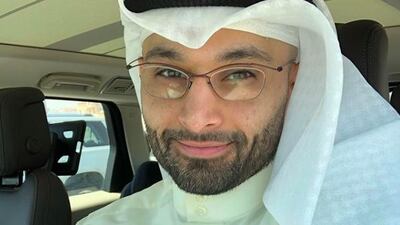Promotion on social media of 'diet teas' and other such potions and lotions that are clearly too good to be true is a global issue (one that the Kardashians have been called out for in the past), and now Kuwaiti dentist Dr Mohammed Nabeel El Safi, known as Dr Abdoty on Instagram, has called out influencers operating in the Gulf state for doing just that.
In a series of videos, the doctor points out that people are promoting, among other things, unregulated weight loss pills and medical toothpastes. He says promoting these things for profit is an insult to their followers' intelligence, and could be harmful to their health.
He talks about influencers, including Shahab Malh (@shahab_vid) who has 1.1 million Instagram followers, and Noha Nabil (@nohastyleicon) who has 8 million followers on Instagram.
He says that Malh was promoting weight loss pills and Nabil’s account featured a post that promoted a toothpaste that claimed to kill all bacteria. “One social media influencer, a young man called Shahab, promotes and advertises weight-loss pills … this is what I’m calling to your attention,” he explains. “I want to show you how people’s intelligence is insulted and their health abused.”
He goes on to discuss how misused terms like "expert opinion" can be, and that personal experience does not hold the same weight as randomised controlled trials.
He points out that the imagery used to advertise weight loss products is often deceptive: "Shahab promoted and advertised someone ... who is believed to be a doctor of alternative medicine,” he explains. "He was posting advertisements on his account [with] before and after photos of people who have used the pills … One of my Instagram followers conducted a simple search to identify the internet sources of the picture. She found out that many of the pictures were taken randomly from the internet, and are pictures of other people.”
Dr Abdoty says that he has no particular issue with the influencers: "I do not have any personal issue with them. When I talk about a person, I am actually discussing a matter, an idea. I am not undermining them if I mention their names. On the contrary, I am talking with utter respect and appreciation."
He points out that his own Instagram account, on which he has 1.8 million followers, is about promoting health, rather than seeking out personal fame: "For me fame is not an objective or requirement. Fame for me is a tool to transmit my message."
And it seems to be working, after Dr Abdoty started his campaign, the Kuwaiti Ministry of Health tweeted out an official statement saying that “violators of laws regulating health-related advertisements will face up to one-year imprisonment and/or a fine of KD1,000 (Dh9,800)”.
The government's tweet included a quote from Deputy Director for Medicine and Nutrition Oversight in the Ministry of Health, Dr Abdullah Al-Badr, who said: “A number of social media celebrities have been transferred to Public Prosecution for posting health products with no advertising license.
“The medical products being marketed by some socialites in the social communication platforms are not licensed by the concerned ministry, and this is considered a breach of law pertaining to advertisement regulations of products related to health,” Dr Al-Badr added.


